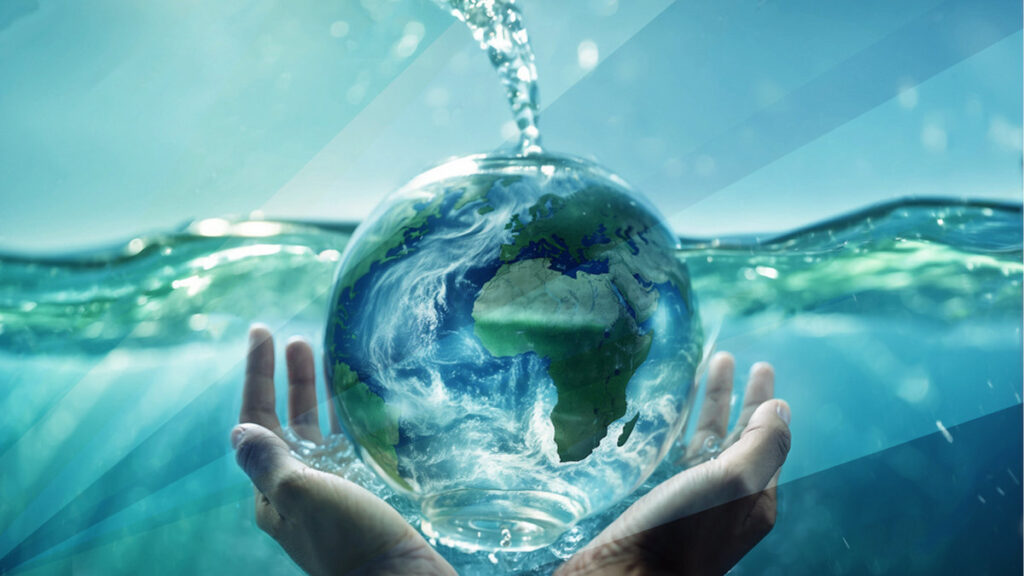Understanding the life cycle of water pollutants
From Tuesday, April 23 at 8:30 a.m. to Wednesday, April 24 at 12:30 p.m., the conference "Humans and Water: Human Impact on Water Management and Pollution" will take place in the Charles Flahault amphitheater at the University of Montpellier's Botanical Institute. This symposium is the result of close collaboration between Ramia Al Bakain, Patrick Allard, and Filomena Silva, three researchers from Mak'It's "guest scientists" program. They are hosted in different research units: Montpellier Hydrosciences (HSM), the Institute of Human Genetics (IGH), and Agropolymers Engineering and Emerging Technologies (IATE). This event is supported by the Occitanie Region, the ExposUM Institute, the ARAID Foundation, and the Agriculture, Environment, and Biodiversity Cluster at the University of Montpellier.

Renowned scientific guests
This conference, bringing together some twenty experts from several countries to speak, is organized by three guest scientists from the University of Montpellier: Ramia Al Bakain, Patrick Allard, and Filomena Silva.
Ramia Al Bakain earned her PhD in analytical and bioanalytical chemistry from Sorbonne University Pierre and Marie Curie in Paris, France. She is currently a professor at the University of Jordan in Amman, specializing in the application of analytical chemistry to sustainability. Her research focuses on green solutions for water, agriculture, and food security, including green methods for water treatment and sustainable resource use. She collaborates internationally with institutions in the United States, France, Lebanon, Austria, Italy, and the United Kingdom, and leads interdisciplinary teams focused on water, food, and agricultural security in the Mediterranean regions. Ramia Al Bakain has received numerous world-renowned awards and scholarships.
Patrick Allard, professor at the Institute for Society & Genetics at the University of California, Los Angeles (UCLA). His research lies at the intersection of genetics, epigenetics, developmental biology, and environmental health. His laboratory uses stem cell-based methods to study the effects of environmental toxins on reproduction and transgenerational health. His work and contributions have earned him prestigious awards.
Filomena Silva is a permanent researcher at the Aragon Research and Development Foundation (ARAID) within the Analytical Research Group (GUIA) at the University of Zaragoza. Her research is at the forefront of food safety, particularly in the field of innovative packaging solutions. Her goal is to develop active packaging strategies using nanomaterials and sustainable compounds such as scavengers, antimicrobials, and antioxidants to extend the shelf life of food products. The researcher currently supervises and coordinates three research projects: the assessment of risks associated with bio-based/recycled materials, the development of packaging solutions for fresh produce, and a collaboration with a major Spanish company to develop new antimicrobial products for fresh produce.
Why this conference?
Our planet's water resources are severely affected by climate change and pollution caused by human activities. This is leading us down a disastrous path if we do not quickly take action involving stakeholders from different fields and at all levels.
With France having just passed its first law limiting the production of PFAS pollutants, and Canada set to negotiate an international treaty on plastic pollution at the same time, this conference will highlight the significant environmental impacts of human activities on water resources: from how we manage this resource to how we can control its pollution/contamination by plastics, persistent pollutants, heavy metals, and organic pollutants.
Understanding the life cycle of these pollutants, from their production to their dispersion in the environment, and their impact on biodiversity is therefore a major challenge in terms of knowledge and regulation.
The program for this conference
Tuesday, April 23:
- 09:20-10:00 Opening lecture: Water restoration – Eric Servat (UNESCO International Center Icireward-Montpellier)
- 10:30 a.m.–12:30 p.m. Session 1: Plastics in our waters: concerns and solutions for the future
- 2:00-4:00 p.m. Session 2: Managing water scarcity: sustainable approaches and pilot projects
Wednesday, April 24:
- 09:30-12:00 Session 3: Our future with persistent pollutants
Practical information:
